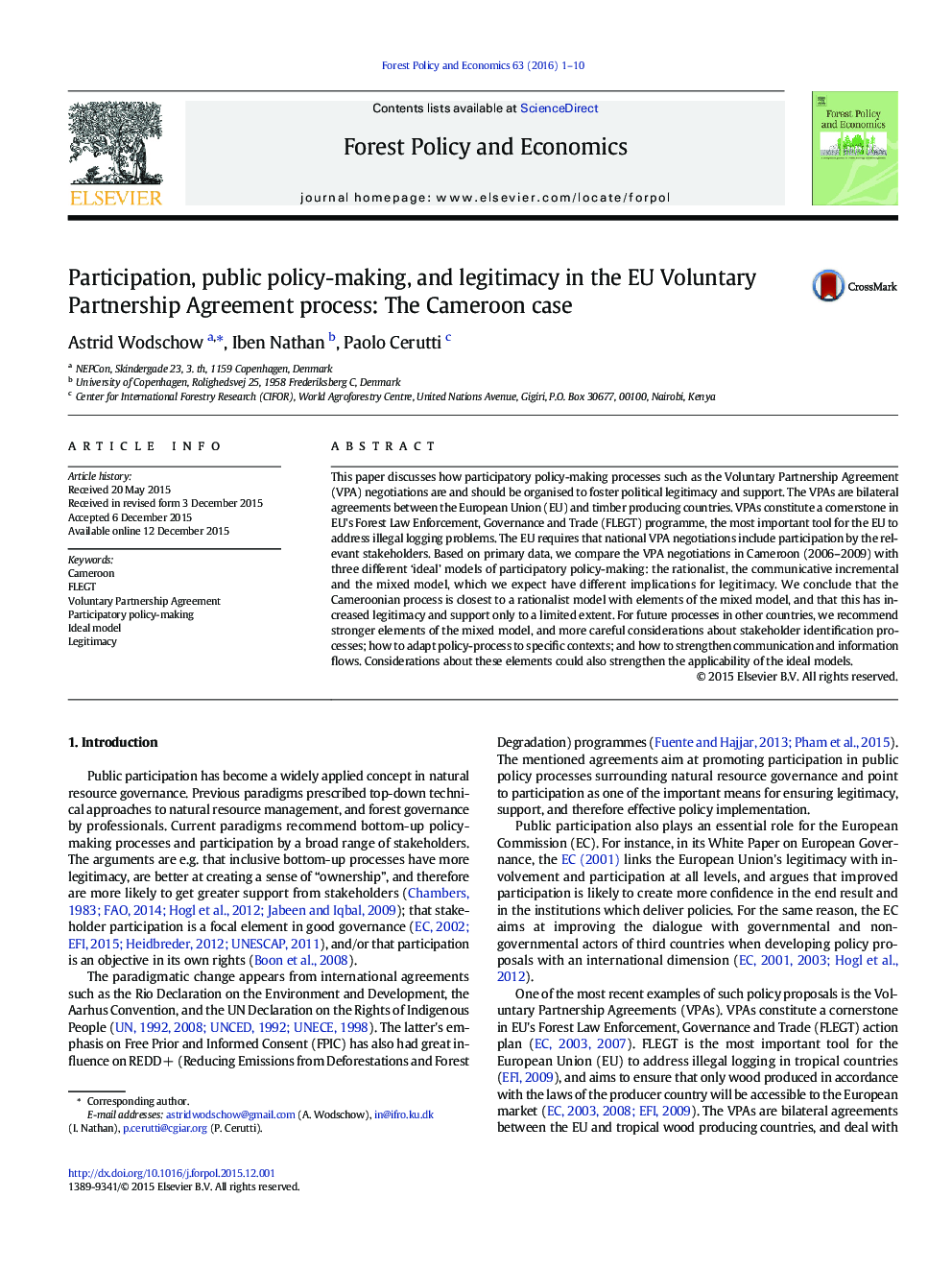| کد مقاله | کد نشریه | سال انتشار | مقاله انگلیسی | نسخه تمام متن |
|---|---|---|---|---|
| 91662 | 159829 | 2016 | 10 صفحه PDF | دانلود رایگان |
• The Cameroonian VPA negotiation process included civil society to a high extent.
• The Cameroon VPA process is best described by the rational model of participation.
• The mixed model is recommended as the most suitable for future VPA processes.
• Legitimacy of the process varies with different stakeholders' different involvement.
This paper discusses how participatory policy-making processes such as the Voluntary Partnership Agreement (VPA) negotiations are and should be organised to foster political legitimacy and support. The VPAs are bilateral agreements between the European Union (EU) and timber producing countries. VPAs constitute a cornerstone in EU's Forest Law Enforcement, Governance and Trade (FLEGT) programme, the most important tool for the EU to address illegal logging problems. The EU requires that national VPA negotiations include participation by the relevant stakeholders. Based on primary data, we compare the VPA negotiations in Cameroon (2006–2009) with three different ‘ideal’ models of participatory policy-making: the rationalist, the communicative incremental and the mixed model, which we expect have different implications for legitimacy. We conclude that the Cameroonian process is closest to a rationalist model with elements of the mixed model, and that this has increased legitimacy and support only to a limited extent. For future processes in other countries, we recommend stronger elements of the mixed model, and more careful considerations about stakeholder identification processes; how to adapt policy-process to specific contexts; and how to strengthen communication and information flows. Considerations about these elements could also strengthen the applicability of the ideal models.
Journal: Forest Policy and Economics - Volume 63, February 2016, Pages 1–10
